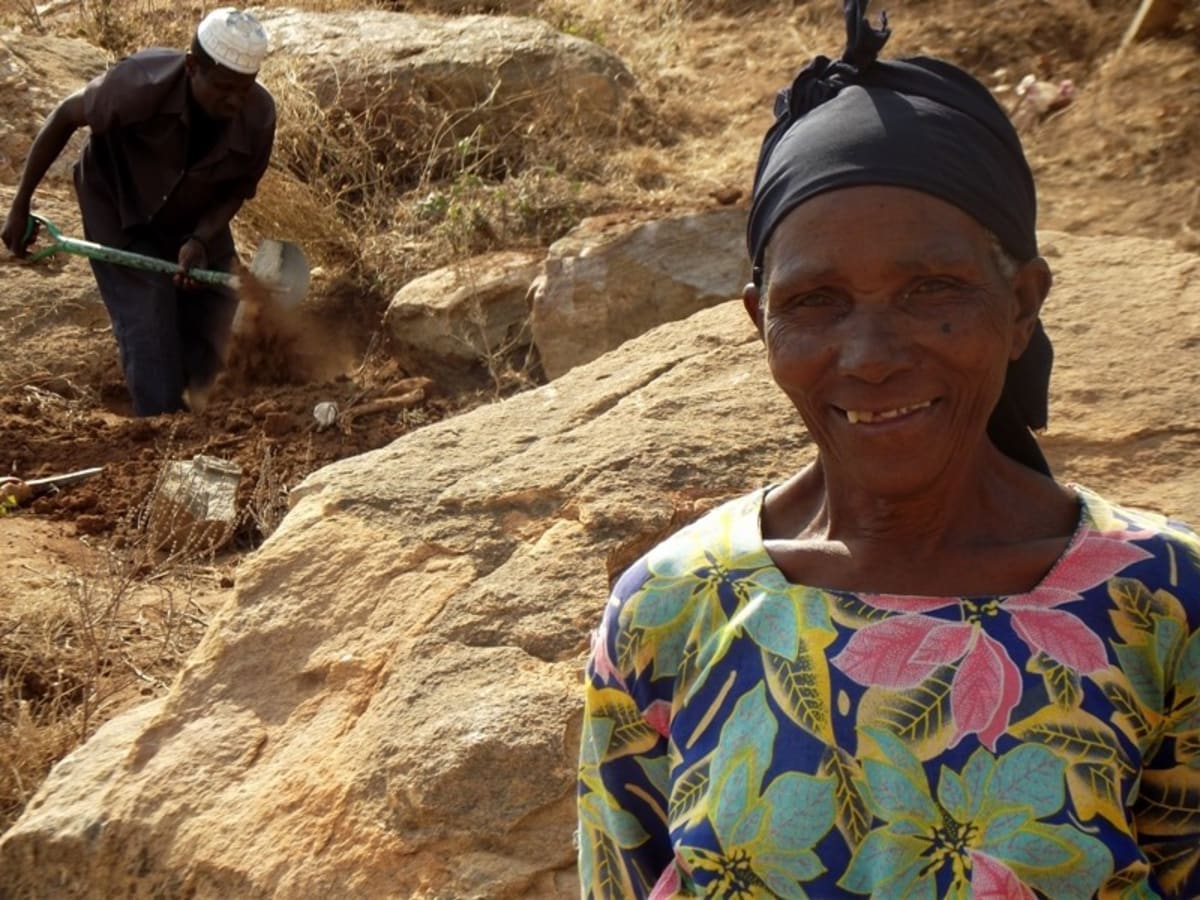Cassava For Breakfast

"I miss cassavas for breakfast and pearl millet porridge. This was my breakfast for the last 69 years. For the last seven years however I have not been able to have this kind of meal. This meal was healthy, nutritious and it’s part of the reason why I am still strong though old. The main reason behind this-my farm cannot produce these crops anymore as the rains have greatly reduced and getting quality seed varieties are hard to come by. We no longer have time for our farms as most of the time is spent on fetching water." This is the opening remark to a conversation I recently had with Susan Thambi of New Soweto self-help group.
New Soweto self-help group was formed in the year 2013.The group was formed by an amalgamation of two villages that is Soweto and Sombe Village. The group has a membership of 33 people. The group is located in Muthingiini sub-location, Mtito-Andei.
"Fetching firewood was a delight to many women. This was the time we used to bond with other women from the community. We would gossip about how our families are doing while easily getting firewood from our farms. But today fetching firewood is a nightmare. An activity that used to take 30 minutes now takes more than 5 hours! For those whose farms have no trees they have to part with at least Ksh 150 equivalent to $ 1.8 dollars a day in order to buy either firewood or charcoal for domestic use. This is hard to come by as most households earn less than a dollar per day."
Clearly these few remarks paint a very grim picture of the daily struggles that these women go through. From interacting with the women, most of them are the main providers of their families as their husbands have left for the urban areas to look for 'greener pastures', which in most occasions are not green. So I inquire from Susan on her daily routine or program.
"I wake up at 5 am to prepare breakfast for my grandchildren. I am currently staying with four grandchildren who are aged between 6-12 years old. Their parents are living in Nairobi. They have porridge for breakfast and leave for school carrying 5 litre water jerricans to be used for school purposes. This is because the schools don’t have access to clean water. In most occasions the water is bought or they fetch it on their way from school, about 3 km from our home. After the children leave for school I pack the donkey with four 20-litre jerricans of water and trek for three hours to the nearest river to fetch water for domestic use. I make three trips to the water point in order to have enough water for washing clothes for the children. By the time I have completed the trips it is almost 3pm. I rarely have lunch. Lunch for me it’s like a luxury. After fetching water I spend another three hours looking for firewood in order to start preparing supper. I make an effort to at least have the supper ready by 7pm and we all go to bed before 8pm as staying up means using more paraffin, which is used to light up the lamps. And this is costly. The routine begins the following day, month, and even years."
As she narrates her story I keep thinking of how these women are struggling to make ends meet for their family. This story portrays resilience, which is vital for survival in the wake of a changing climate. Even as she narrates her life there is a sense of passion and hope - no resentment or disappointment, as one would expect.
Out of nowhere she exclaims, "Thing have changed though, things are changing. We recently formed a self-help group that would enable us to work together to construct sand dams, and eventually plant trees, terrace our lands and gain knowledge on how to improve farming techniques within this changing climate and live well despite the hard ships. I now spend less than 2 hours to fetch water, because of the sand dam. I have time to plant tree seedlings, terrace my farm, go to the market, and attend merry go round meetings that enable me to save some money. It has not been easy but at least life is now better than it was a few years ago. With more dams, more terraces, more trees and the freed up time that we used to spend in fetching water we will soon start having cassavas and pearl millet porridge for breakfast once again!"
See The Water Project in Susan Thambi's Community »